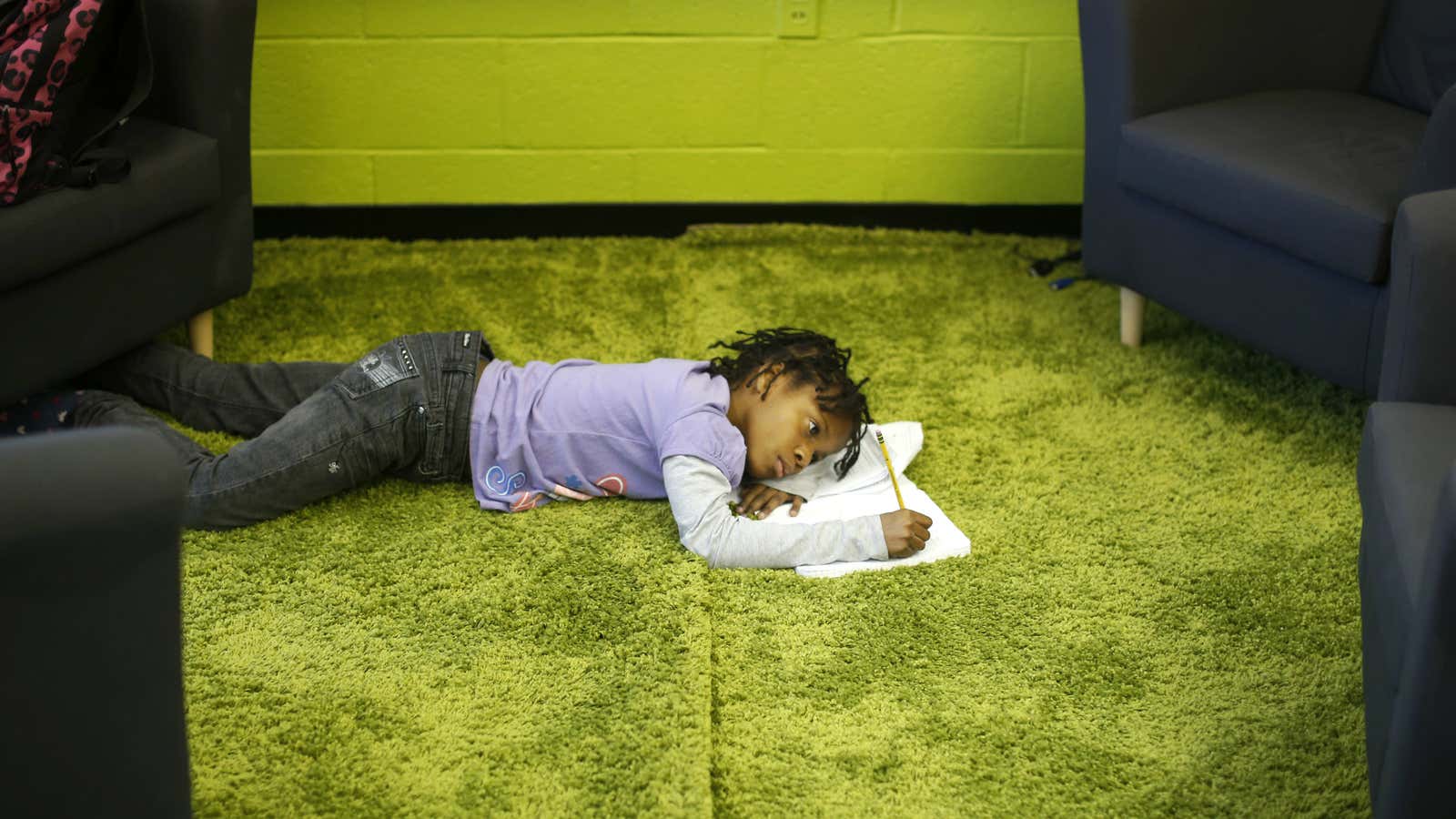The debate over whether homework helps kids learn or robs them of a proper childhood is as heated as ever, as shown by the outpouring of attention for one teacher’s decision to ban take-home assignments.
Brandy Young, a second-grade teacher in Texas, passed out a note to parents on “Meet the Teacher Night” last week announcing that she would not assign homework for the upcoming school year. Young said that she had done her homework on homework, and decided it wasn’t helping.
Samantha Gallagher, whose daughter is in the class, took a photo of a note announcing the new homework policy, which urged parents instead to use the time to “eat dinner as a family, read together, play outside, and get your child to bed early.” Her Facebook post about it has been shared more than 67,000 times.
Many people feel that increased academic standards and high-stakes testing are taking a toll on kid’s mental health. “Children today are less free than they have ever been,” Peter Gray, a psychologist and professor at Boston College, told Quartz. Too much time in school and other structured activities means kids aren’t learning critical life-coping skills.
Young told CBS that her decision was based on the fact that kids are more than the sum of their grades:
[Students] work hard all day. When they go home they have other things they need to learn there. I’m trying to develop their whole person; it’s not beneficial to go home and do pencil and paper work.
The homework wars have been raging for years. Alfie Kohn, perhaps the most prominent homework critic, wrote The Homework Myth in 2006 arguing that the negative effects of homework are well-known and the positive effects imagined. The work does not reinforce learning nor improve academic results, while reducing precious time with family and friends. He writes:
For younger students, in fact, there isn’t even a correlation between whether children do homework (or how much they do) and any meaningful measure of achievement. At the high school level, the correlation is weak and tends to disappear when more sophisticated statistical measures are applied.
Not everyone agrees, as Quartz has covered before:
John Hattie, director of the Melbourne Educational Research Institute, synthesized more than 800 meta-studies covering more than 80 million students to figure out what specific factors are linked to better learning outcomes. Tom Sherrington, a teacher who is a firm advocate of homework, analyzed Hattie’s research and concluded that there is little benefit to homework for kids in primary school, but “excellent” results for students in secondary school, or from age 11.
It’s not clear if Young was reading Kohn, Hattie, or just responding to the fact that her young students didn’t seem to benefit from the added work. But comments on Gallagher’s feed were clear in their support.
“I like this teacher. She has her head on right,” said one.
“Hopefully this will change some things,” added another, “but we do an hour of homework each night plus studying for tests and reading.”
Many others just said ”yes!” and “wow” and “jealous!”
In an email to Quartz, Gallagher says the reaction has been encouraging: ”I am amazed at the amount of attention the post is getting but not by the amount of support Mrs Young’s policy has received. It’s incredible.”
